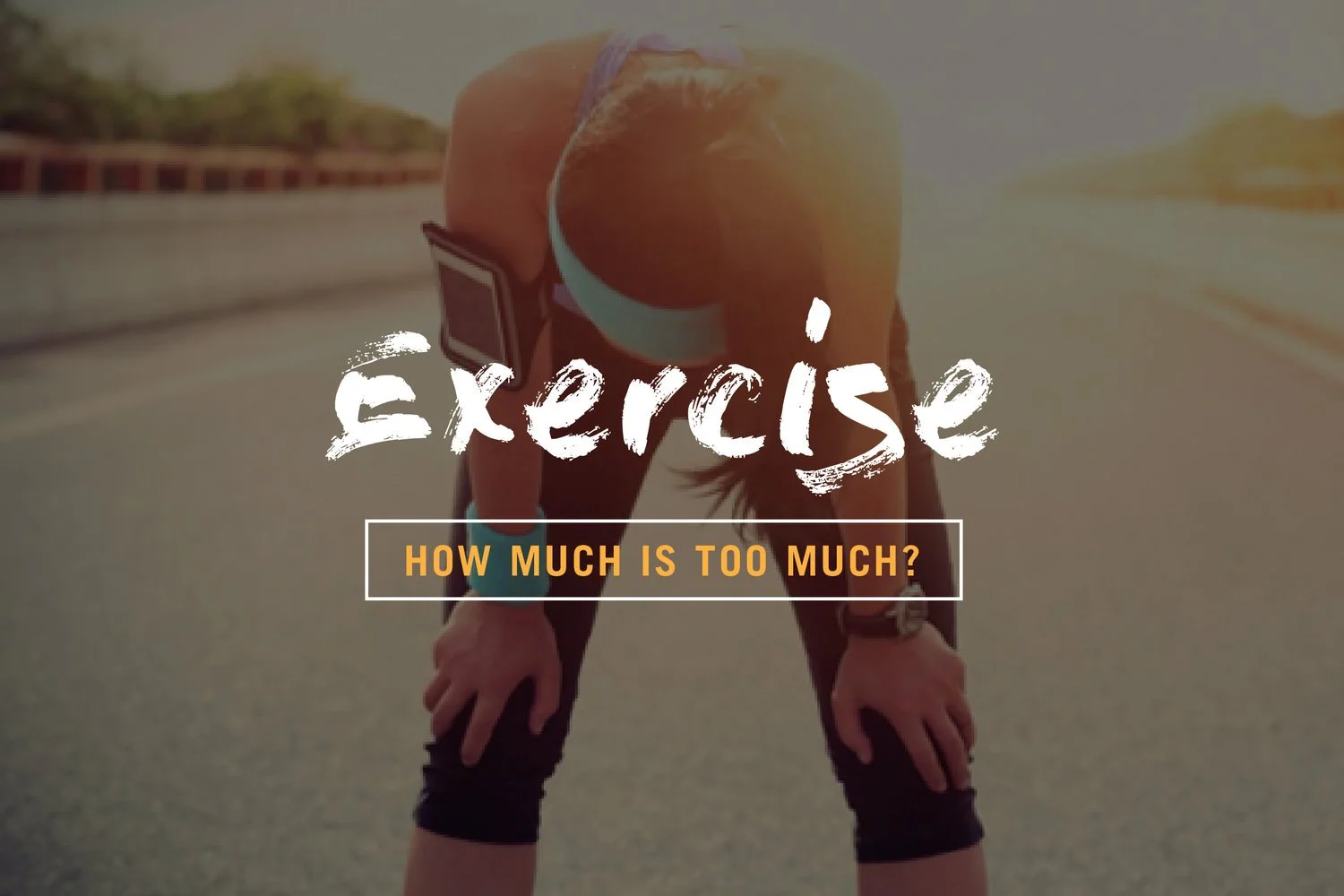Exercise - How much is too much?
By Martin Ebner
Exercise helps prevent diabetes, reduces high blood pressure and cholesterol, improves your mood and sex drive and promotes better sleep. The list of the health benefits associated with daily exercise literally could go on for the entirety of this article.
However, as the old expression goes "too much of anything is good for nothing" and exercise is no exception. While the majority of people struggle to get enough, there's a small percentage that exercise too often, too intensely and for too long.
How much exercise is too much?
This is a very good question and the answer is very much dependant on the individual.
Rest assured: If your exercise routine consists of 3 moderately intense 60 minutes sessions or less per week, your chances of over-exercising are highly unlikely. If however your workouts are more frequent, intense, and time consuming and exercise has become a borderline obsession, It could be time to pump the breaks and reassess your goals.
Symptoms of over exercising
When you overtrain, you can shock your central nervous system. The length of recovery required varies from person to person and is very much dependant on the severity of the "shock". If you are experiencing any of the symptoms listed below, you may need to consider taking some time off from exercise until you feel well enough to resume.
Symptoms associated with overtraining:
Decreased athletic performance.
Lethargy.
Constant aches and pain.
Insatiable thirst.
Bad moods.
Elevated resting heart rate.
Irritable.
Depression.
Injuries.
Insomnia and sleep disruption.
Constant feeling of being run down.
How to avoid overtraining
It's perfectly normal when training hard to experience occasional symptoms of fatigue, loss of motivation and muscle soreness. But if your symptoms are more severe, linger on and prevent you from performing routine daily activities, it could be time to reevaluate your goals. Exercise after all should compliment your lifestyle, not damage it.
TRAINING
Both frequency and training volume should be taken into consideration when creating a workout plan. Train hard enough to evoke a training response but don't push yourself to the point that it takes 10 days to recover from a single workout.
If you are new to exercise, start slowly and build up your workouts as your experience and fitness level improves. You may want to consider mixing up the intensity of your workouts from week to week. If you consistently train at full exercise capacity, contemplate taking a deload week every 4-12 week. This is when you drastically decrease training volume to allow your body to recover.
Nutrition
I cannot emphasise enough the importance of a healthy diet. Make sure to eat plenty of carbohydrates, protein, and healthy fats to supplement your training regime. Pre and post workout nutrition is also vitally important to both fuel your workout and to help aid recovery.
SLEEP
Make sure to get at least 7 hours of sleep a night. The extra zzz will help your body recover and prepare you for that tough workout that lies ahead. Go on, hit that snooze button!
REST
Most fitness enthusiasts know that rest is one of the keys to fitness progression. However, very few people allow sufficient time to fully recover after a grueling workout.
Rest doesn't necessarily mean you have to glue your backside to the sofa and watch an entire Netflix series. It means, do not do anything strenuous that might hinder your recovery. Yoga, stretching, swimming and walking are all fantastic forms of active rest that will help revitalize the body.
STRESS
For anybody that suffers from or has suffered from stress in the past knows, it's exhausting. If you feel that your stress levels are diminishing your energy and crippling your workouts, take some time off from your usual workout program and exercise accordingly. Try meditation or yoga - both of which should help relieve the symptoms of stress.
Conclusion
Train "smart", eat well, take the occasional break and above all, listen to your body at all times. It's when we rest that we recover, refocus and return stronger than before.





